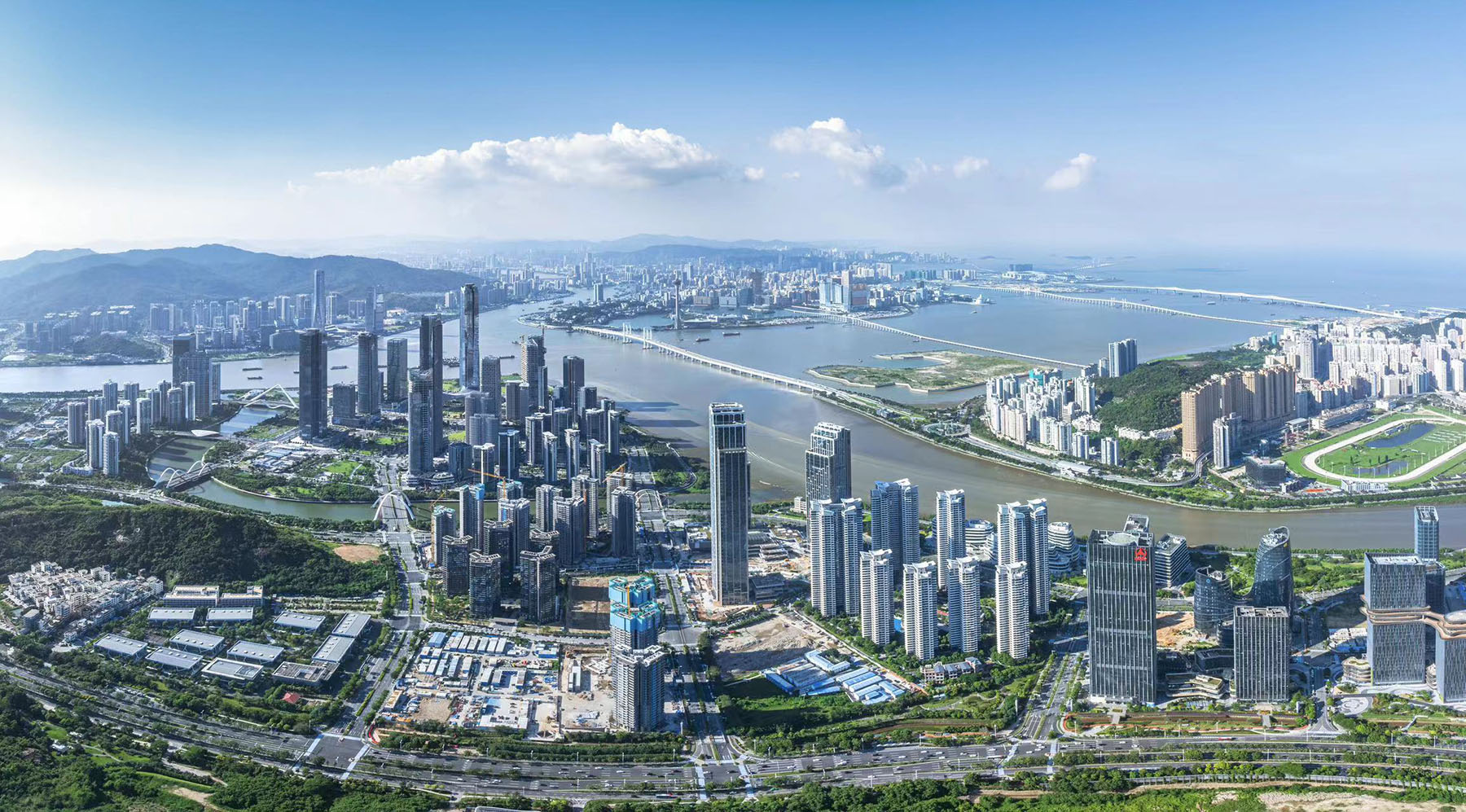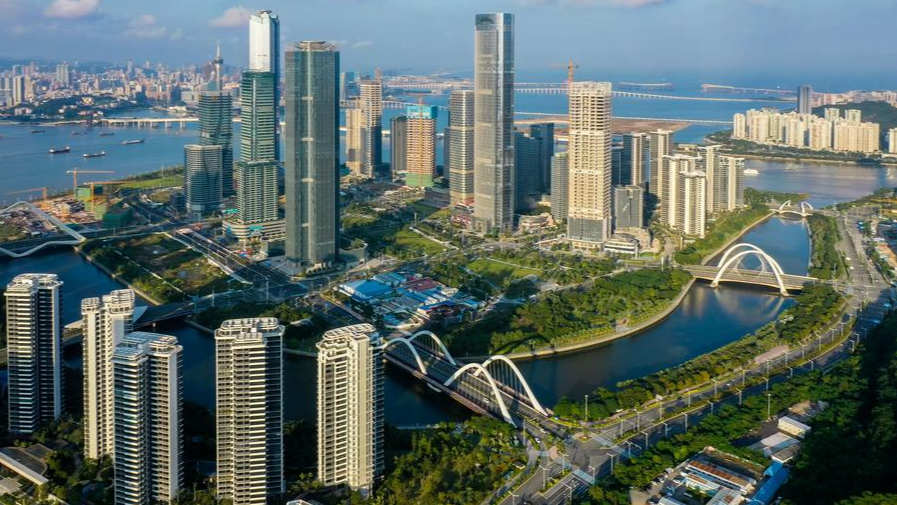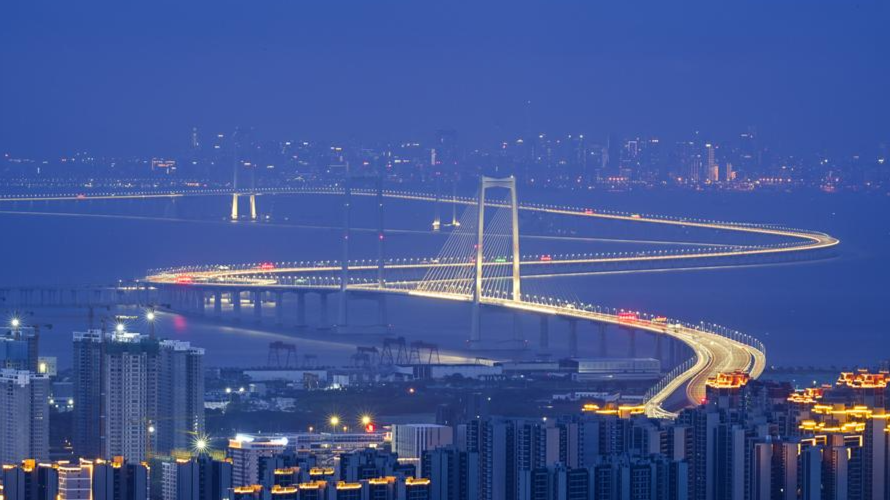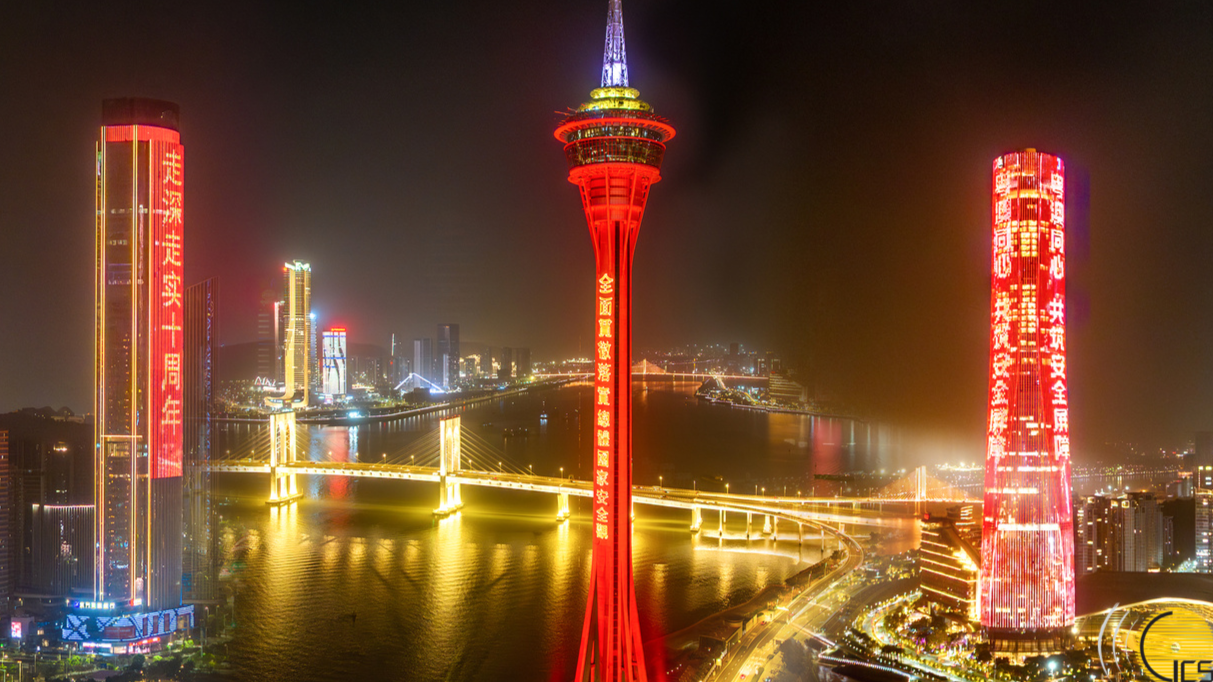
BEIJING/MACAO - I was on a business trip in the Guangdong-Hong Kong-Macao Greater Bay Area (GBA) last week. The schedule was tight, but a few details stand out in my mind -- the vigor and vitality of China's startups, and the promising prospects of integrated development.
China in 2019 released a development outline for the GBA, which encompasses the Hong Kong and Macao special administrative regions (SARs) as well as nine cities in the economic powerhouse of Guangdong Province.
The area synergizes Guangdong's strong supply chain and an abundance of international resources across the two SARs. In 2024, the GBA's gross domestic product hit 14.8 trillion yuan (about $2.06 trillion). It is seen as a rapidly growing sci-tech innovation hub and an ideal incubator for startups.
During my trip, I met many young entrepreneurs -- ambitious, energetic and resourceful ones who are grasping the opportunities of the GBA and riding the wave of tech-driven development. Among them were young people from Macao, as the region is turning to strategic economic diversification.
ALSO READ: HZMB hits 10m passenger milestone, boosting GBA integration
Ken Lai, 40, began his entrepreneurship journey in the GBA in 2018. After two years of preparations, he founded AKL Intelligence Technology Limited, a company focusing on intelligent pilot systems.
Last year, Lai made a foray into the emerging low-altitude economy by rolling out an intelligent tourism product that enables tourists with no filming experience to try their hand at aerial photography and videography.
"We have established cooperation with some scenic areas in cities such as Hengqin and Zhongshan in Guangdong, and we are promoting our products to more mainland cities," Lai told me, noting that his company's latest product would debut in Guizhou -- a popular province for tourism in southwest China -- during the May Day holiday.
In 2022, Lai opened a branch in Hengqin, which is a frontier of the integrated development of the GBA, as part of his efforts to tap into the broader market of the Chinese mainland.

An island with the nearest distance of merely 187 meters from Macao, Hengqin is attracting more young people from the SAR to start up businesses and achieve personal development there.
"Although we are currently a small company with a team of 20-odd members, we position ourselves as one open to the international market, while being based in Hengqin can help us scale up quickly," Lai said.
Lai's choice is not difficult to understand: If you have an opportunity to strengthen your career in a location near your home, and where varied supportive measures are accessible, why would you not?
Since the Guangdong-Macao In-Depth Cooperation Zone in Hengqin was officially established in 2021, more than 6,000 Macao-funded enterprises have made it home, achieving an added value of more than 3 billion yuan last year, according to the cooperation zone's statistics bureau.
The Macao SAR also sees Hengqin as key to its appropriate economic diversification. At a press conference during our stay in Macao, Chief Executive Sam Hou Fai expressed his hope that Macao youth would "walk out of their comfort zone and integrate with the GBA."
We spent one day touring the cooperation zone in Hengqin. It felt like I took in an enormous amount of information. I was dazzled by a cluster of high-tech platforms in the form of laboratories, incubators and industrial parks, which have gathered a large cohort of cutting-edge talent, as well as entrepreneurs engaged in sectors ranging from integrated circuits and health to traditional Chinese medicine and cross-border commerce.
ALSO READ: Industrial platforms in Hengqin bolster innovation, startups

We visited TrueHealth, a medical technology enterprise founded by Macao resident Zhang Haoren in 2018. Capitalizing on the vast potential of the GBA, the company moved its headquarters to Hengqin in 2023.
I was most impressed by its medical device for extracorporeal organ preservation and repair. In a transparent container I saw a pig lung that, we were informed, was extracted at about 4 a.m. and transferred to the device at 8 a.m., meaning it experienced four hours of organic damage. By the time we saw it, which was roughly 11:40 a.m., the lung had recovered many of its normal functions, with the machine displaying the message, "Pulmonary alveolar inflation response is good."
Zhang, who is also CEO of TrueHealth, told us that while extracorporeal organ preservation requires low temperatures in most cases around the world, TrueHealth's product can preserve an organ at 25 degrees Celsius -- close to the human body temperature -- for as long as 48 hours, giving rise to the possibility of organ transfers in certain difficult scenarios.
"Previously, about 90 percent of organ preservation fluid was imported. We are working faster to accelerate the accessibility of a domestic alternative," she said.
She noted that based on its portable organ repair device, TrueHealth is helping to build an "express air service for organ transfers," aiming to minimize the duration of organ transportation while ensuring organs are transferred alive. "Nothing is more important than life," she said.
Zhang's words reminded me of an old-school advertisement catchphrase that went something like, "Sci-tech can change lives." This was the reality here, and I know for sure that what I saw during my trip was just the tip of the iceberg.
In a world full of turbulence and uncertainty, I feel something certain: Chinese sci-tech professionals and startups never yield to or worry about technological bottlenecks. They never waste time on the matters of others, but race against time to make themselves better.

This eye-opening trip also assured me of the prospects of the GBA's integrated development. From the flourishing cooperation zone in Hengqin to the crowds of people from Hong Kong and Macao who visit Guangdong at the weekends, I see a closely bonded GBA.
When we passed the Hengqin port on our departure from Macao, I snapped an amazing picture that captured the University of Macao and the Hengqin port building in the same frame. It is worth noting that port clearance took me less than 10 minutes, and I have been told it is usually even more time-efficient for Macao residents.
The executive committee of the cooperation zone in Hengqin has said that it hopes that Macao residents visiting Hengqin will no longer need any certificates to travel by October. Instead, they can simply scan their face at the port in a process as convenient as taking the subway.
Mio Weng Loi, a dermatologist from Macao, was granted a physician's qualification license and began working at a medical institution in Hengqin last year. He shuttles between Macao and Hengqin each day.
He said that what stands out most about working in Hengqin for him is that he can get firsthand information about policy supports and market trends there, which is a big help for his future planning.
"You'd better come and see what is happening here with your own eyes," Mio said. All sectors will find opportunities in what is potentially the most prosperous consumer market in the GBA, he said. And I agree with him.


